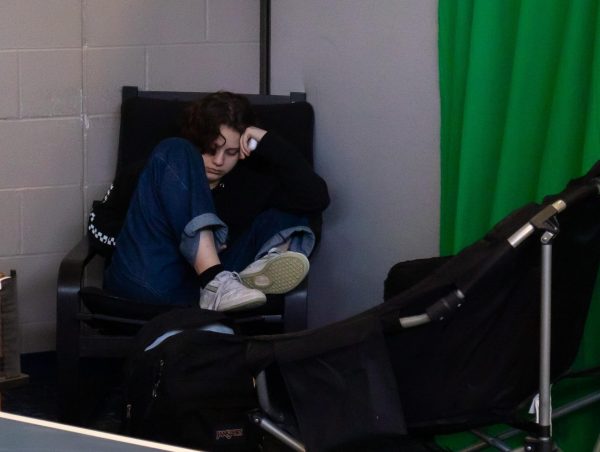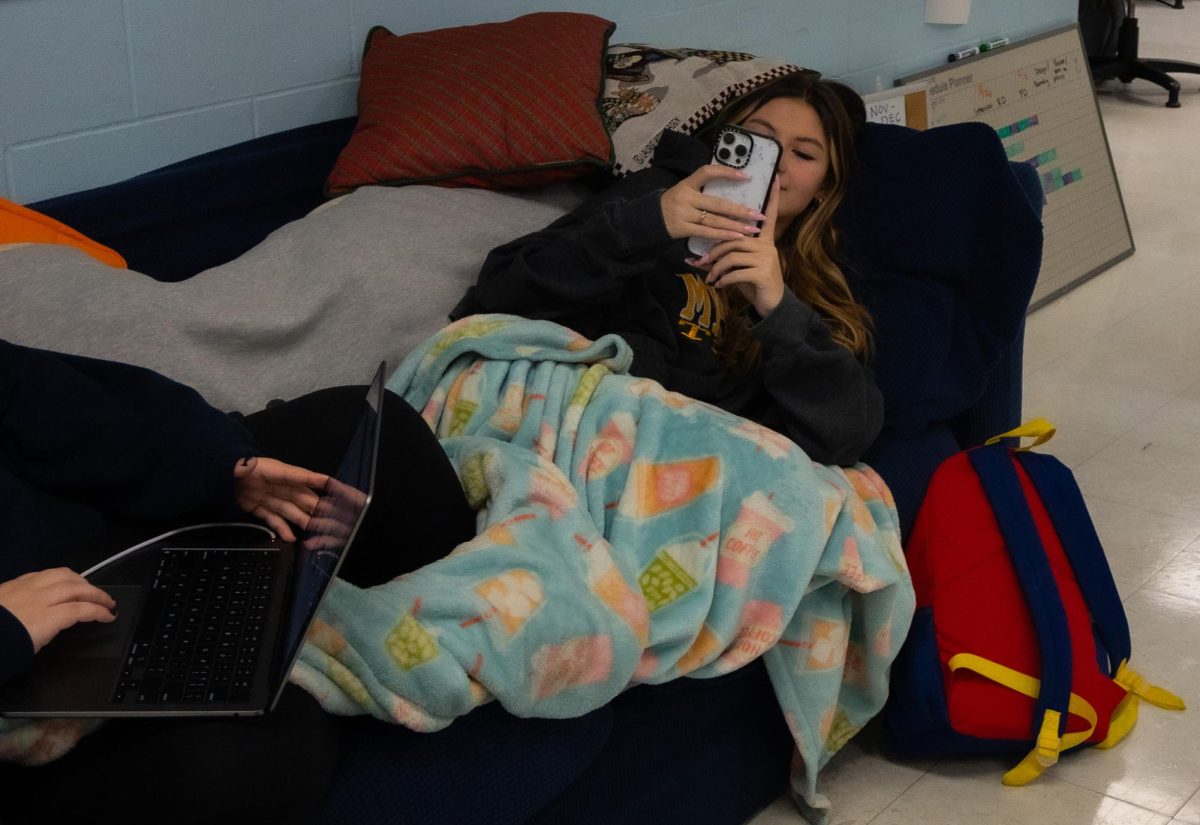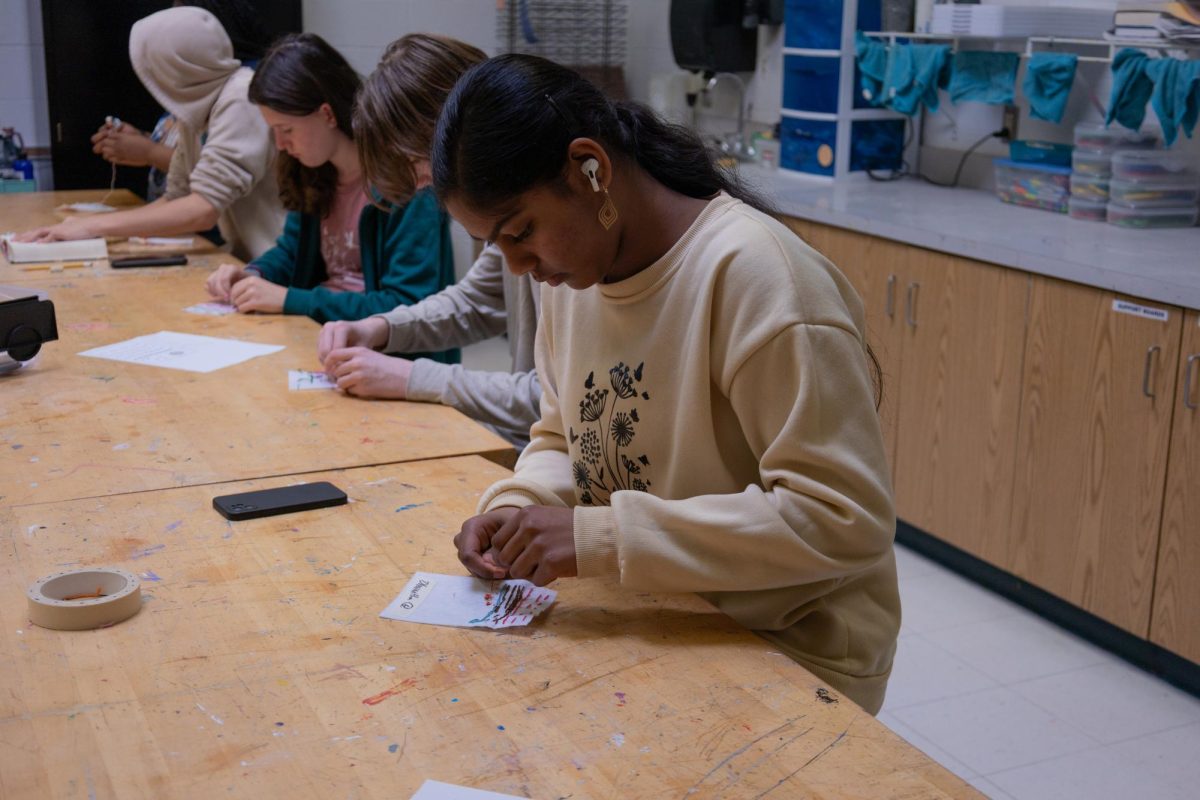One of the most important components of a person’s health is sleep. It is important for the brain in order for it to continue working properly and for the body to rest. It is especially important for adolescents to maintain a healthy sleep schedule because of growth and development, yet many students rarely get the correct amount of sleep due to homework and various activities after school. In order to help students get better sleep, schools should delay start times to give more natural sleep hours to students.
Throughout my whole school career, I have taken all of the advanced classes that I could manage and sought to reach as high as possible with my GPA. It’s easy to get ahead of yourself with high goals, and pay for it at the height of semester when you’re up at unearthly hours of the night trying to study.
The average high school student needs 8-10 hours of sleep every night for their health based on research done by the CDC. School makes it difficult to reach that number between the early wake up times and the hours spent doing sports, clubs, and homework – especially for advanced classes.
At least nine hours of sleep would be the most beneficial for students, but less than eight percent actually achieve it.
Senior Nolan Scofield has a few after school activities including marching band, Metro 8, and a college class. Between those and several hours of homework, it isn’t uncommon for him to be awake a little later on school nights in order to stay on track.
“If I don’t get enough sleep, then I just drink coffee,” Scofield said. “If I do end up getting enough sleep, then I have enough energy for the day.”
Getting the right amount of sleep at night can improve someone’s mood for the day and have a huge impact on their performance when it comes to tests and assignments too. For Scofield, it is especially hard to do well on a test with less sleep when it comes to the end of the day.
“I think it was nights where I didn’t get enough sleep and the test was late,” Scofield said. “Like, it’s seventh hour later in the day, I’m kind of conked out.”
According to the Child Mind Institute, sleep deprivation actually puts adolescents into a perpetual haze that makes it hard for them to focus and have high performance. This makes it important to get plenty of sleep on the nights before big tests and projects.
Junior Erin Getgood takes multiple AP classes and is part of varsity cheerleading, dive, French Honor Society and HOSA, which helps her understand the side of the school fighting for time to sleep. On an average night, she only gets about six hours of sleep.
Mental health issues inside schools also increased for students who don’t get enough sleep. The body needs the right amount of rest hours in order to function properly, so without that rest, the body creates imbalances of hormones that can cause mental health struggles like depression.
From the National Institutes of Health, sleep deprivation increases the risk of depression by about 25 to 38 percent.
If students got an extra hour in the morning, they would feel more natural waking up for school since their sleep hours would compare closer to their sleep schedule on the weekend. It would help with balance in everyday sleep and also aid in mental health.
Another issue is students falling asleep in class. It isn’t uncommon for students to sleep through lectures in later hours of the day.
It is a large enough issue in our school that multiple Instagram pages have been made over the years where students take pictures of others sleeping in their class.

While moving school back an hour would also move all of these activities back too, it would still provide a more regular sleep schedule. Most students would not choose to wake up at six in the morning without a reason.
Studies from The National Institutes of Health also show that a delayed school start time increases sleep duration on weeknights for adolescents.
“It’s more natural to wake up later, like seven o’clock, when the sun’s actually coming up, rather than when it’s pitch black outside,” said Scofield.
The late nights and very early mornings make it increasingly difficult to keep up with school and still feel balanced and refreshed from rest every day. While changing the hours of school might not necessarily allow for more sleep, a more regular sleep schedule would still help immensely. Including sports into the algorithm to calculate time management doesn’t make it any easier. I would be willing to try just about anything, within reason, if it got me just a little bit more rest.
Change can be a large overall struggle, and that might be the majority of the reason nothing like this has been passed. The reward of altering the start times of school that have been set for a long time doesn’t outweigh the possible risk that always comes with new ideas.
Our district has one of the earliest start times in the St. Louis region and other schools have done research on how the delay helped students. While our district decided not to follow suit by voting against it a couple years ago, it could be very beneficial for future generations of students.









